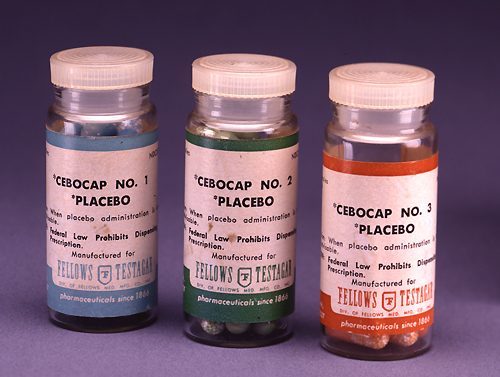The concept of the placebo phenomenon is widely recognised, particularly within the realm of medication, where people often wonder whether placebos can genuinely assist physically or if their effects are purely psychological. The terms ‘placebo’ and ‘placebo effects’ are familiar to many, often conjuring images of taking a sugar pill to make other medicines more palatable. This method of administering a placebo—whether via a tablet, liquid, or even an intravenous injection—is the most common. In certain situations, a medical procedure might also be used to deliver a placebo. Regardless, the placebo maintains the appearance of genuine medication, making one believe they are experiencing its effects, although it lacks any therapeutic properties.
It is not uncommon to use placebos in clinical trials for new medications coming on the market. Providing researchers with the opportunity to see if a new treatment works and if it is an improvement on medications already available. Medical trials can also determine if new treatments have any side effects and allow researchers to assess the effect the latest medication can have, and which patient groups can feel the most benefit from the new treatment.
One of the most common methods of testing new medical therapies is using placebo-controlled studies. Many consider double-blind placebo studies to be the best way of testing different medications. It is widely used in the field of psychiatric treatment, as a placebo is known for its psychological properties. However, despite its common use, some have questioned the scientific validity of a placebo test and wonder if they really are as effective as some claim?
Some consider a double-blind placebo study a major step forward on experiments marking the differences between those who take the placebo, along with other treatments and those who do not.
In the course of a placebo control study, subjects are given the new medication in question whilst a different control group are administered a placebo, which purposely has no medical properties and will be of no effect.
It is also commonplace for placebos to be used in blinded trials, where people would be unaware if they were being given a genuine medical treatment or a placebo neither the medical staff dispensing the pill or the subjects taking them are aware if they are a placebo or not.
However, many feel this procedure can lead to problems. It is felt in some cases the placebo effect, the process of taking the pill may be confused with the treatment effect, dealing with the actual medication. These effects are kept separate during the placebo study.
When carrying out placebo tests there are generally three different groups, the control group, a placebo group and a treatment group. The control group does not receive a placebo, but they can create a baseline where you can evaluate the placebo and treatment group. If those on the placebo group feel better than the control subjects, then their improved health can be put down to a successful placebo trial. If the treatment group subjects show better signs of improvement than it is put down to the medication they have taken.
However, many in the areas of medical research have issues with double-blind placebo studies. Some feel the tests represent an unrealistic scenario as, in real life, when patients take a prescription, they are fully aware it is medication. During a double-blind study, they do not know if the medication is genuine or not, which can affect their expected results and how the pill affects them.
There is another problem some people have with double-blind studies. It is said they often respond to the researcher’s objecting to subjects who may have accidentally learned if they have taken a placebo or not. However, they do not answer questions about the type of pill they took in the course of the trial. The placebo pill and the genuine item look the same. The difference is the actual pill produces authentic biological after effects, while the placebo does not. If you take the real pill during the study you could feel some of those effects, leading you to believe you are a part of the treatment group. You may be expecting to feel the effects of a genuine pill, which may be confused with the symptoms of a placebo.
This is one of the ways the results of a double-blind study could be misinterpreted, causing some people to question the scientific validity of placebos.
Sources

John has dedicated his life to finding treatment for those with addictions and supporting their families.
A business manager for 20 years in the construction industry John’s own experience of addiction led him to found his own rehab centre group in Scotland.
John qualified as a counsellor for people with substance misuse during his time working as a therapist and manager for the foundation. He also trained as an interventionist and appeared on ITV as a consultant helping families impacted by addiction.
He has helped thousands of people in recovery and his knowledge of the rehabilitations process and the addiction experience is unparalleled.


